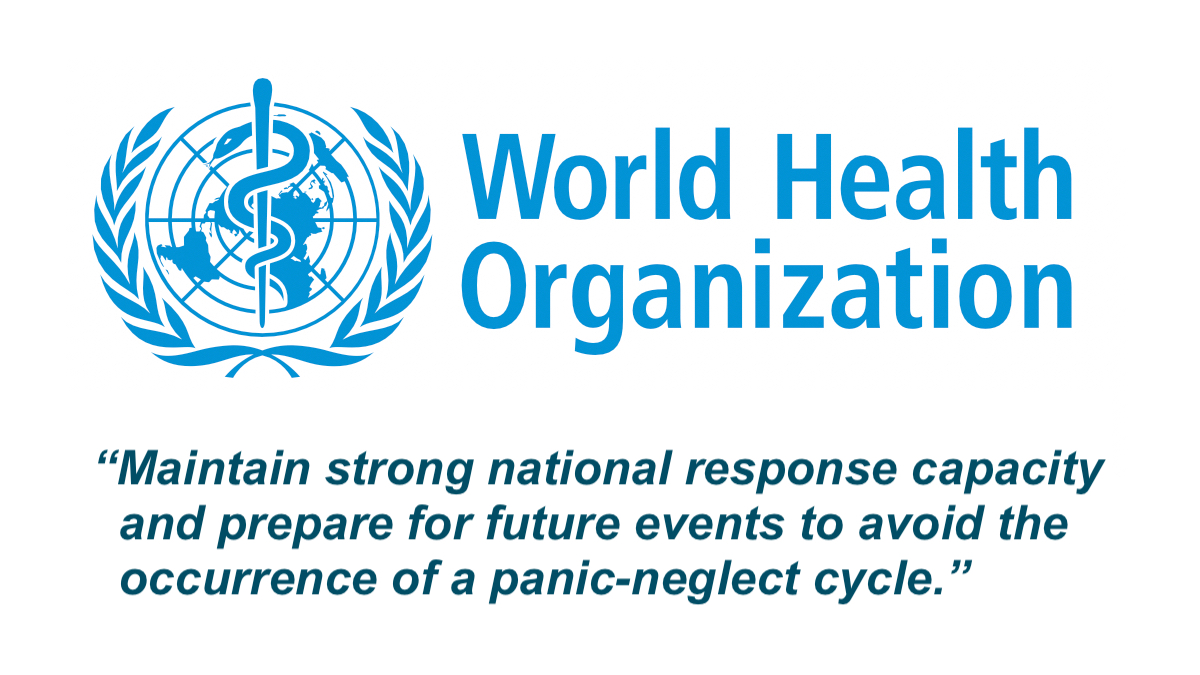Statement on the fourteenth meeting of the International Health Regulations (2005) Emergency Committee regarding the coronavirus disease (COVID-19) pandemic
The WHO Director-General has the pleasure of transmitting the Report of the fourteenth meeting of the International Health Regulations (2005) (IHR) Emergency Committee regarding the coronavirus 2019 disease (COVID-19) pandemic, held on Friday 27 January 2023, from 14:00 to 17:00 CET.
The Committee was informed that, globally, 13.1 billion doses of COVID-19 vaccines have been administered, with 89% of health workers and 81% of older adults (over 60 years) having completed the primary series. Significant progress has also been made in: developing effective medical countermeasures; building global capacity for genomic sequencing and genomic epidemiology; and in understanding how to manage the infodemic in the new informational eco-system including social media platforms.
===
Temporary Recommendations issued by the WHO Director-General to all States Parties
- Maintain momentum for COVID-19 vaccination to achieve 100% coverage of high-priority groups guided by the evolving SAGE recommendations on the use of booster doses. States Parties should plan for integration of COVID-19 vaccination into part of life-course immunization programmes. Regular data collection and reporting on vaccine coverage should include both primary and booster doses. (Global COVID-19 Vaccination Strategy in a Changing World: July 2022 update; Updated WHO SAGE Roadmap for prioritizing uses of COVID-19 vaccines January 2023; Interim statement on the use of additional booster doses of Emergency Use Listed mRNA vaccines against COVID-19; Good practice statement on the use of variant-containing COVID-19 vaccines; Behavioural and social drivers of vaccination: tools and practical guidance for achieving high uptake.)
- Improve reporting of SARS-CoV-2 surveillance data to WHO. Better data are needed to: detect, assess, and monitor emerging variants; identify significant changes to COVID-19 epidemiology; and understand the burden of COVID-19 in all regions. States Parties are recommended to use an integrated approach to respiratory infectious disease surveillance that leverages the Global Influenza Surveillance and Response system. Surveillance should incorporate information from representative sentinel populations, event-based surveillance, human wastewater surveillance, sero-surveillance, and animal-human-environmental surveillance. WHO should continue to work with Member States to ensure adequate capacity and coverage of COVID-19 surveillance are in place to recognise quickly any significant changes in the virus and/or its epidemiology and clinical impact including hospitalization, so that WHO can trigger appropriate global alerting as necessary. ( Public health surveillance for COVID-19 )
- Increase uptake and ensure long-term availability of medical countermeasures. States Parties should enhance access to COVID-19 vaccines, diagnostics and therapeutics, and consider preparing for these medical countermeasures to be authorized outside of Emergency Use Listing procedures and within normal national regulatory frameworks. (Therapeutics and COVID-19: living guideline; COVID-19 Clinical Care Pathway)
- Maintain strong national response capacity and prepare for future events to avoid the occurrence of a panic-neglect cycle. States Parties should consider how to strengthen country readiness to respond to outbreaks including attention to health workforce capacity, infection prevention and control, and financing for respiratory and non-respiratory pathogen preparedness and response. (WHO COVID-19 policy briefs; Strengthening pandemic preparedness planning for respiratory pathogens: policy brief)
- Continue working with communities and their leaders to address the infodemic and to effectively implement risk-based public health and social measures (PHSM). Risk communication and community engagement should be adapted to local contexts and tackle mis- and dis-information that erodes trust in medical countermeasures and PHSM. States Parties should strengthen the public, media, and communities’ understanding of the evolving science to encourage evidence-informed action and policies. States Parties should continue to monitor individual and public response to the implementation of PHSM and the uptake and acceptability of COVID-19 vaccines, and implement measures, including communication strategies, to support appropriate utilization. (WHO risk communications resources; Considerations for implementing and adjusting PHSM in the context of COVID-19.)
- Continue to adjust any remaining international travel-related measures, based on risk assessment, and to not require proof of vaccination against COVID-19 as a prerequisite for international travel. (Interim position paper: considerations regarding proof of COVID-19 vaccination for international travellers; Policy considerations for implementing a risk-based approach to international travel in the context of COVID-19).
- Continue to support research for improved vaccines that reduce transmission and have broad applicability, as well as research to understand the full spectrum, incidence and impact of post COVID-19 condition, and to develop relevant integrated care pathways.

